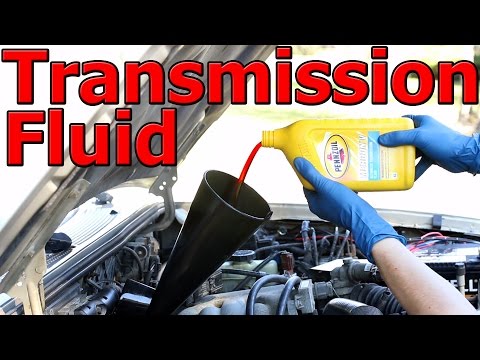Terrible odors coming from your car is quite irritating, but it’s inevitable after you have your car for a long time. And among these smells, the smell of rotten eggs is surprisingly common.
But you might be asking, why does my car smell like rotten eggs? Most of the time, it’ll smell like rotten eggs if you have issues with your car’s-
- Catalytic converter
- Broken fuel pressure sensor
- Bad transmission fluid, a faulty fuel filter, etc.
However, we’ll be going over why your car might smell like rotten eggs and how to fix it in detail. Let’s get straight into it.
Table for Causes of Your Car Smell Like Rotten Eggs

Later in the article, we’ll go through a detailed overview of all of the different issues you might have the smell of rotten eggs in your car. But for a general idea, you can check this table.
| Causes of smell like rotten eggs | Solutions |
| Issues with Catalytic Converter | Replace your catalytic converter |
| Broken Fuel Pressure Sensor | Replace your fuel pressure sensor |
| Old Transmission Fluid | Replace your transmission fluid |
| Faulty Fuel Filter | Clean your fuel filter or replace it |
| Physical Rotten Food Or Dead Animals | Inspect your car, and take out any rotten food or dead animals |
| Leaking Gasses | Check your injector, gas cap, fuel filter, and exhaust system |
| Clogged Water | Clean your air filters and drain lines. |

Why Does My Car Smell Like Rotten Eggs: Causes & Fixes

Here are the most common and possible reasons for your car to smell like rotten eggs, along with their fixes in detail —
Catalytic Converter Issues
Among all the possible reasons, issues with your catalytic converter are the most common cause for your car to smell like rotten eggs.
In a nutshell, a catalytic converter in your car works with the emission system and reduces the number of vehicle emissions. It achieves this by limiting how much toxic gas from the engine is emitted into the atmosphere. These gasses can often smell terrible.
Among these gasses, the most notable one is hydrogen sulfide. It smells exactly like rotten eggs, so if your catalytic converter is broken, it might leak this gas into your car and into the atmosphere.

Fixes
When your catalytic converter has issues, it won’t be able to stop the hydrogen sulfide from leaking. To fix leaking issues with a catalytic converter, you should replace it entirely.
It can be a bit costly, though, generally costing $900 or more on low-end models and up to $3,500 for the highest-end vehicles. You can expect to spend at least $1000 to $1500 for most cars, though.
Broken Fuel Pressure Sensor
The fuel pressure sensor in your car can accurately track the fuel pressure. It maintains the fuel economy to ensure you don’t spend too much fuel and waste your money on fuel.
As it manages the fuel economy, if the sensor breaks, too much fuel might enter directly into your engine. This puts extra pressure on your catalytic converter to turn the gasses from the fuel odorless.
So with a broken fuel pressure sensor, you might even break your catalytic converter in the car as well. And with both of these parts broken, you’re bound to get harmful gasses and the smell of rotten eggs in your car.

Fixes
To fix this issue, you’ll just need to replace the fuel pressure sensor. It’ll cost around $300 most of the time, but prices may vary based on the location.
If the sensor isn’t fixed in time, you’ll also need to replace your catalytic converter, and altogether you might need to spend around $2000. So, check the fuel pressure sensor as early as you get the odor, and replace it if found broken.
Old Or Low-Quality Transmission Fluid
The transmission fluid in your vehicle acts as a lubricator to keep all the mechanical parts in your car running smoothly and to keep them a bit cooler. If you have old or low-quality transmission fluid, it might only last around 30,000 miles.
After that, it’ll smell terrible and won’t lubricate the parts enough. This transmission fluid can end up leaking outside of your engine, and it can smell like rotten eggs.

Fixes
To fix the smell from the old transmission fluid, just replace it and clean any parts with the leaked transmission fluid. Sometimes you might even need to replace the parts which have leaked fluid.
It most commonly leaks onto the gasket and seals, so you might need to replace those. But generally, you’ll need to replace the fluid every 30,000 to 60,000 miles.
Changing it at the 45,000-mile mark is the best option to save the most amount of money without the risk of the rotten egg smell.
Replacing your transmission fluid is quite easy, and you can do it at home, too. You can check out this YouTube video below by ChrisFix for a detailed explanation of replacing it.
Faulty Fuel Filter
The fuel filter is responsible for filtering debris, dust, and other unwanted particles from the fuel. Similarly to the fuel pressure sensor, if this goes bad, it might also lead to a smell of rotten eggs from the dirty fuel.
However, if this isn’t fixed, it can put more pressure on the fuel pressure sensor. From there, it might even affect your catalytic converter.
This creates a ripple effect, and you’ll need to change all three of the parts, as all three of them work together to make your car function. So even if one part isn’t working properly, the pressure sensor and catalytic converter might be affected too.

Fixes
If the fuel filter is simply clogged, you can get away by just cleaning it. But if it has other issues or even damage, replace it entirely. This actually isn’t very expensive, and usually will cost between $50 to $100.
But if your fuel filter isn’t changed in time, you’ll need to eventually replace your fuel pressure sensor as it might have issues. And if you don’t replace that in time, you might need to replace your catalytic converter, too. Altogether it can cost around $2500 or more.
Unnoticed Rotten Food Or Dead Animals
As obvious as it is, another reason for your car to smell like rotten eggs is when you physically have rotten boiled eggs or other rotten foods in a corner where you can’t see it easily.
This can occur with small dead animals, too, such as mice. Unfortunately, the only real way to find out if you have rotten food or dead animals is by physically checking your car thoroughly.

Fixes
First, check your entire car for rotten food or dead animals. This can take some time, so be patient and check under all your seats and near the corners. Afterward, you can just throw them out with a glove or tissue and spray a disinfectant and air freshener in the spots.
Smells From Gases, Rubber, Or Clogged Water
You might also experience the smell of rotten eggs from any gas leaks from the gas cap, injector, or fuel tank. You can also get an exhaust smell due to leaks, but these are a bit more uncommon. All of these gasses are toxic, and they might smell like rotten eggs too.
Aside from that, you might have burnt rubber in some parts of your car to cause a smell of rotten eggs. The air filters and drain lines might get too much moisture too, which will lead to an unpleasant smell.
It smells similar to rotten eggs, but they might smell slightly different. Nonetheless, you should still fix the issues as they’ll cause an unpleasant smell.

Fixes
First, check your gas cap, injector, and fuel tank for any leaks. Then check your exhaust system for any leaks through a smoke test, and check under the hood of your car for burnt rubber and clean it.
Finally, clean your air filters and drain lines to stop any unpleasant odors from clogged water.
If you’re dealing with a rotten egg smell in your car, you may also be interested in our articles on why your car smells like burning rubber after driving or why your car smells like burnt popcorn. Our article on why your car smells like burning rubber after driving explains the possible causes of this smell, such as overheated brakes, worn or damaged tires, or a loose or damaged belt. Meanwhile, our article on why your car smells like burnt popcorn discusses the common causes of this odor, such as a malfunctioning catalytic converter, an overheating engine, or an oil leak. If you’re experiencing any of these smells in your car, our articles can help you diagnose and fix the problem.Frequently Asked Questions (FAQs)
Here are a few of the popular questions that we get asked often to clear up common misconceptions or further confusion —
No, you shouldn’t drive if you have the smell of rotten eggs coming from your car. This is because the smell indicates a problem with the parts of your car most of the time.
So first you should try to check which part has issues and get it fixed, and then you can drive it safely.
No, it won’t. When you have a terrible smell in your car such as the smell of rotten eggs, it means that there is an issue with your car. So if you leave it for a while, the smell will become worse.
When it comes to quickly checking for problems with your car, the most effective and easiest way is to get a diagnostic scan. This will end up giving you a DTC code, and each one of these codes refers to different parts.
So if you know how to interpret DTC codes, you can easily figure out which part has a problem causing the smell of rotten eggs, and you can fix it. You can get a full diagnostic scan from any local automotive store.
Conclusion
The question of why does my car smell like rotten eggs is common. Most the time, it’s caused by the parts in your car such as the catalytic converter, fuel pressure sensor and filter, and the transmission fluid.
It might also happen due to physical rotten eggs or dead animals, but this is less common than you might expect. To fix the technical issues, you can just replace the part.
Failing to replace some parts in time can lead other parts to be affected. Altogether, you might even need to spend over $2,500 for all the parts combined. Because of this, you should do maintenance checks for your car’s parts every month or so. With that said, cheers!

